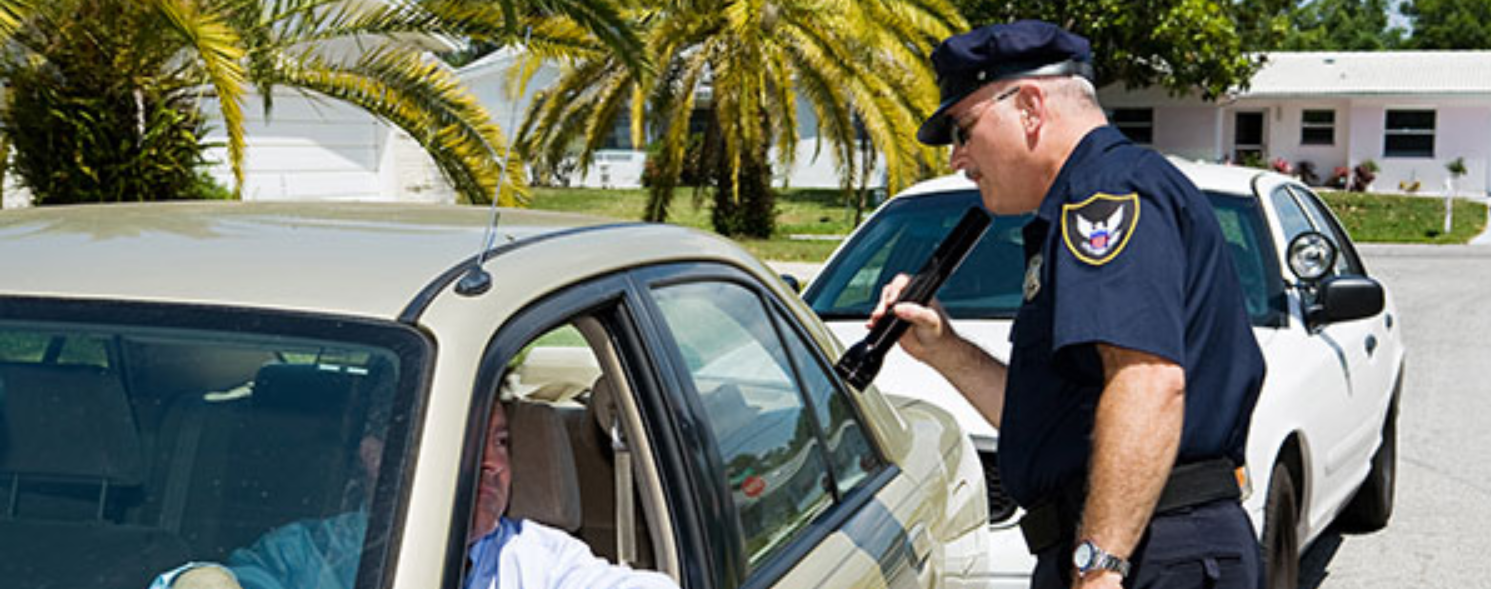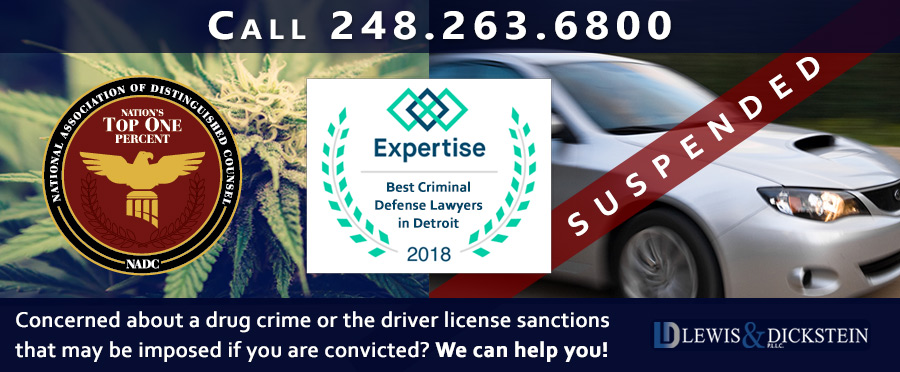Michigan law used to require a driver’s license suspension for drug convictions.
Even with no prior drug violations, the driver’s license used to be suspended for six months following a drug conviction. Michigan’s law has since changed.

Hard Suspension for Drug Convictions
A “hard suspension” is a period of driver license suspension where there is no driving allowed, even on a restricted basis. For the first conviction for a drug offense in Michigan, the hard portion of the suspension used to be 30 days. In those cases where a defendant has a previous drug conviction, within 7 years, the hard suspension used to be 60 days. Neither the judge nor prosecutor had any discretion to grant or agree to a restricted license under these circumstances. The suspension was imposed when the Michigan Department of State was advised by the court that there is a conviction.
Restricted License following Drug Conviction
A restricted license means that the driver’s ability to operate a car is limited either in terms of time or the reason for traveling. Generally, the court may order that the driver is permitted by the Secretary of State to drive for any of the following reasons:
- to, from, and during the course of employment
- to and from school
- to and from alcohol treatment or education
- to and from probation, court, and probation
- to and from a place of regularly occurring medical treatment for a serious condition
Here is an example of an Affidavit and Order for Restricted Drivers License.
Common Drug Crimes That Used to Result in Driver License Sanctions
A conviction for committing a controlled substance offense or an attempt or conspiracy conviction for a controlled substance offense used to trigger a suspension of your driver license in Michigan. Common examples of crimes that used to result in a suspension included:
- Possession of a Controlled Substance (such as marijuana, cocaine, heroin, opioids, prescription medication, etc…)
- Possession with Intent to Deliver a Controlled Substance
- Manufacture/Delivery of a Controlled Substance
- Obtaining a prescription drug by giving a false name
- Obtaining a prescription drug by falsely representing facts
- Falsely making, uttering, publishing, passing, altering, or forging a prescription.
- Knowingly possessing a false, forged, or altered prescription.
- Preparing or permitting the preparation of a prescription drug

Avoiding a License Suspension for a Felony or Misdemeanor Drug Offense
The only way to avoid a driver license suspension or sanction under Michigan’s old law was to avoid a conviction. This could be done in several ways. First, some statutes provide ways for a youthful or first-time offender to plead guilty or no contest to an offense and still not be convicted. In some cases, a defendant may be innocent of a charge, or the police may have violated a constitutional right, like an illegal search in violation of the 4th Amendment. In these cases, a highly experienced defense lawyer may argue for an acquittal or dismissal of all charges. Finally, a respected trial lawyer may negotiate with the prosecutor to change the charge to an offense that does not trigger a driver license suspension.

Free Consultation for Felony or Misdemeanor Drug Offense
If you are concerned about a felony or misdemeanor drug crime or the driver’s license sanctions that might be imposed if you are convicted, we can help you. The defense team with LEWIS & DICKSTEIN, P.L.L.C. has decades of experience successfully defending clients in state and federal court.
Call us today at (248) 263-6800 for a free consultation or complete an online Request for Assistance Form. We will contact you promptly and find a way to help you.














